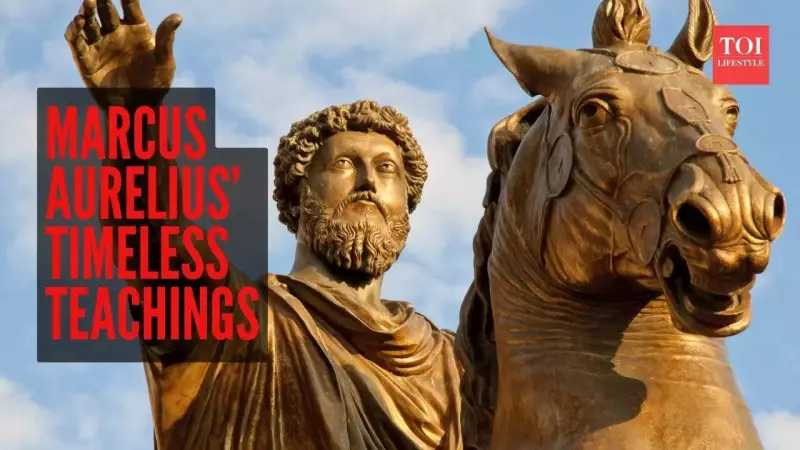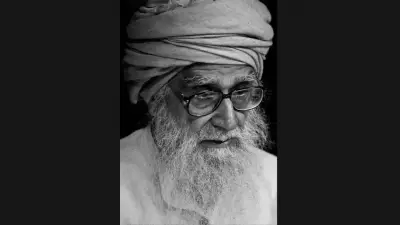
Timeless Wisdom from a Stoic Emperor
Marcus Aurelius, the renowned Roman emperor and Stoic philosopher, continues to inspire generations through his personal journal, Meditations. Written nearly two millennia ago, his reflections contain profound lessons about discipline, purpose, and living meaningfully. Though he never explicitly compiled a list titled "lessons men learn too late," his writings reveal patterns of wisdom that many individuals only grasp after years of experience and reflection.
The Fear of Never Beginning to Live
"It is not death that a man should fear, but he should fear never beginning to live" stands as one of Marcus Aurelius's most powerful statements. This insight strikes at the heart of a common human experience - the tendency to exist passively rather than engage actively with life. The philosopher-emperor suggests that the true tragedy isn't mortality itself, but spending our limited time merely surviving instead of truly living with purpose and courage.
Many men reach middle age or later before realizing they've been playing it safe, avoiding risks, and suppressing their authentic desires. To "begin to live" means embracing experiences fully, expressing oneself honestly, and pursuing what gives life meaning rather than simply following conventional paths.
Your Perception Shapes Your Reality
Another cornerstone of Stoic philosophy appears in Marcus's teaching: "If you are distressed by anything external, the pain is not due to the thing itself, but to your estimate of it; and this you have the power to revoke at any moment." This principle highlights that our suffering often stems more from our interpretations than from events themselves.
This lesson proves particularly valuable for men who frequently learn through hard experience that emotional mastery begins with controlling perception. While we cannot always dictate what happens to us, we retain complete authority over how we respond. By consciously shifting our perspective on challenges, we can dramatically reduce unnecessary stress and reclaim inner stability.
The Destructive Power of Anger
Marcus Aurelius wisely observed that "How much more grievous are the consequences of anger than the causes of it." This insight speaks directly to a pattern many recognize only after years of damaged relationships and regretted actions. Anger's initial trigger often fades quickly, but the aftermath - broken trust, damaged reputations, and lost opportunities - can persist for years.
The Stoic emperor reminds us that practicing patience, restraint, and thoughtful response protects our peace of mind and preserves important relationships. Impulsive reactions often create problems far greater than whatever provoked them initially.
Happiness Comes From Within
In a world increasingly focused on external achievement and material acquisition, Marcus's teaching that "Very little is needed to make a happy life; it is all within yourself, in your way of thinking" offers a counterintuitive truth. Many men spend decades chasing success, wealth, and validation before discovering that genuine contentment arises from mindset, gratitude, and simplicity.
A calm mind, disciplined thoughts, and appreciation for life's small moments create richer satisfaction than external accomplishments alone. True joy emerges as an inner practice rather than an outer reward.
Thoughts Create Your Reality
Marcus Aurelius emphasized that "Our life is what our thoughts make it," highlighting the powerful connection between our internal world and external experience. What we consistently focus on shapes our emotions, behaviors, and ultimately our destiny. Negative thinking patterns quietly limit potential, while positive mental discipline builds resilience and opens possibilities.
Transforming one's internal dialogue can fundamentally change life's quality, as thoughts become the blueprint for character, relationships, and future choices.
The Gift of Morning Gratitude
The practice of beginning each day with appreciation appears in Marcus's suggestion: "When you arise in the morning, think of what a precious privilege it is to be alive - to breathe, to think, to enjoy, to love." This simple yet profound habit shifts perspective from what we lack to what we've been given.
Many people only appreciate life's fundamental blessings when faced with hardship or advancing age. Starting each day recognizing the opportunity to grow, feel, connect, and contribute fosters humility, joy, and presence instead of stress and complaint.
Enduring Relevance of Stoic Wisdom
The teachings of Marcus Aurelius continue to resonate because they address universal human concerns that transcend time and culture. His insights into purpose, perception, emotional management, and contentment provide practical guidance for navigating modern challenges. The fact that these lessons often arrive "too late" for many underscores the importance of engaging with philosophical wisdom earlier in life.
By integrating these Stoic principles into daily practice, individuals can build stronger, calmer, and more meaningful lives regardless of external circumstances. The wisdom of this ancient emperor-philosopher remains remarkably relevant for contemporary seekers of truth and fulfillment.





